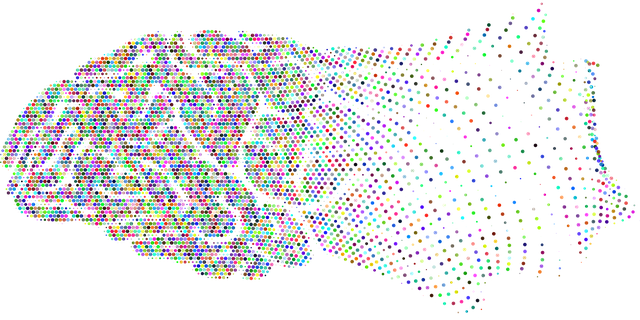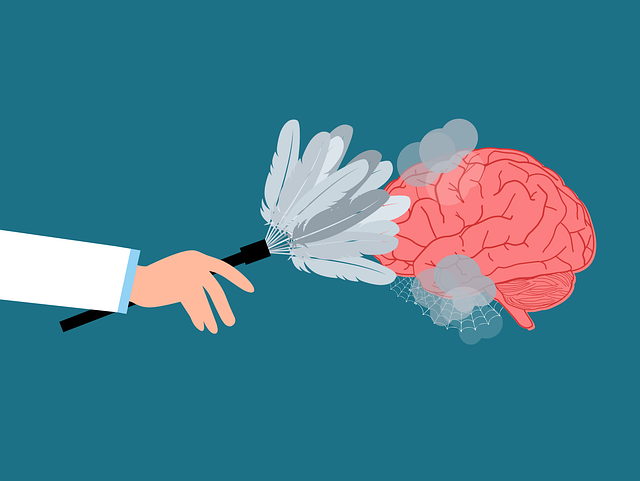In diverse Colorado Springs, effective Colorado Springs codependency therapy requires therapists to integrate ongoing education, self-reflection, client feedback, and specialized training for enhanced cultural sensitivity. This approach improves therapeutic outcomes by creating safe, supportive environments that foster trust and engagement. Techniques like mindfulness meditation and positive thinking empower individuals to actively manage their mental health. Through community outreach programs and regular Cultural Competency Training, healthcare providers ensure inclusive practices and improved access to mental wellness services for all diverse communities in Colorado Springs.
In the diverse landscape of mental healthcare, cultural sensitivity is paramount. This article explores how understanding cultural diversity enhances treatment outcomes, particularly in Colorado Springs. We delve into the impact of cultural sensitivity, offering strategies for codependency therapy and building trustful relationships. By examining these aspects, mental health practitioners can provide more effective care tailored to the unique needs of their clients in this vibrant community.
- Understanding Cultural Diversity in Mental Health Care
- The Impact of Cultural Sensitivity on Treatment Outcomes
- Strategies for Culturally Competent Practice in Colorado Springs
- Building Trust and Effective Therapy Relationships
Understanding Cultural Diversity in Mental Health Care

In the vibrant landscape of mental healthcare, understanding cultural diversity is not just a consideration but a necessity. Colorado Springs codependency therapy, for instance, requires therapists to be attuned to the unique needs and perspectives of individuals from various ethnic, racial, and cultural backgrounds. This involves recognizing that mental health experiences are shaped by societal norms, beliefs, and practices specific to each culture. For example, what constitutes stress and effective stress management techniques can vary significantly from one community to another, highlighting the importance of tailored interventions in Mental Wellness Coaching Programs Development.
Navigating this complexity demands a nuanced approach where therapists foster cultural sensitivity through ongoing education and self-reflection. Incorporating feedback from diverse clients and engaging in specialized training on cultural competency can enhance therapeutic outcomes. Furthermore, producing inclusive Mental Wellness Podcast Series can serve as a bridge to connect with hard-to-reach populations, providing them with valuable resources for improving their mental wellness while promoting understanding between different communities.
The Impact of Cultural Sensitivity on Treatment Outcomes

Incorporating cultural sensitivity into mental healthcare practice significantly enhances treatment outcomes. By understanding and respecting a client’s cultural background, values, and beliefs, therapists in Colorado Springs Codependency Therapy can create a safe and supportive environment that fosters trust and engagement. This tailored approach not only improves therapy adherence but also enables more effective intervention strategies, as cultural context plays a pivotal role in shaping an individual’s mental health experiences and expressions.
The benefits extend beyond improved client-therapist relationships. Cultural sensitivity promotes inclusive practices, such as the successful implementation of Community Outreach Program Initiatives and Mental Illness Stigma Reduction Efforts. These initiatives aim to enhance access to mental wellness services for diverse communities, ensuring that everyone receives culturally competent care. By embracing cultural diversity, mental health professionals can contribute to more positive treatment outcomes and stronger community connections.
Strategies for Culturally Competent Practice in Colorado Springs

In Colorado Springs, a diverse community with a rich cultural fabric, mental healthcare providers must adopt culturally competent practices to offer effective support. One key strategy is Colorado Springs codependency therapy, focusing on understanding and addressing intergenerational trauma within unique cultural contexts. This approach recognizes that traditional Western therapeutic methods might not resonate with all individuals, emphasizing the importance of tailoring treatments to specific cultural needs. By integrating traditional healing practices, therapists foster a sense of trust and acceptance, encouraging clients to engage more openly in their healing journey.
Furthermore, incorporating techniques like mindfulness meditation can be highly beneficial. This ancient practice promotes self-awareness and emotional regulation, allowing individuals to cultivate inner peace and resilience. Encouraging clients to integrate positive thinking and self-care routine development for better mental health enables them to take an active role in their well-being. Such strategies not only enhance therapeutic outcomes but also empower individuals to navigate life’s challenges with greater cultural sensitivity and self-compassion, ultimately improving overall mental healthcare accessibility in Colorado Springs.
Building Trust and Effective Therapy Relationships

Building trust is a cornerstone when offering mental healthcare services to individuals from diverse cultural backgrounds, particularly in a city like Colorado Springs where codependency therapy demands sensitivity and understanding. Effective therapy relationships are cultivated through active listening, empathy, and a genuine desire to understand one’s unique perspective. This process requires healthcare providers to be aware of their own biases and to create a safe, non-judgmental space for clients to explore sensitive topics related to their cultural identity.
Cultural sensitivity in therapy translates into tailored self-care practices that address the specific needs of each individual. By incorporating elements from community outreach programs, therapists can foster connections and enhance the therapeutic experience. Moreover, regular Healthcare Provider Cultural Competency Training ensures professionals remain adept at navigating these complex dynamics, ultimately improving patient outcomes.
In addressing mental healthcare needs in diverse communities, particularly in Colorado Springs, culturally sensitive practices are pivotal. By understanding cultural diversity and its impact on treatment, therapists can significantly enhance therapeutic outcomes. Implementing strategies for culturally competent care, such as building trust and fostering effective relationships, ensures that individuals from various backgrounds receive personalized support. This approach not only improves access to mental health services but also promotes successful recovery journeys tailored to the unique needs of each client, including those seeking Colorado Springs codependency therapy.












